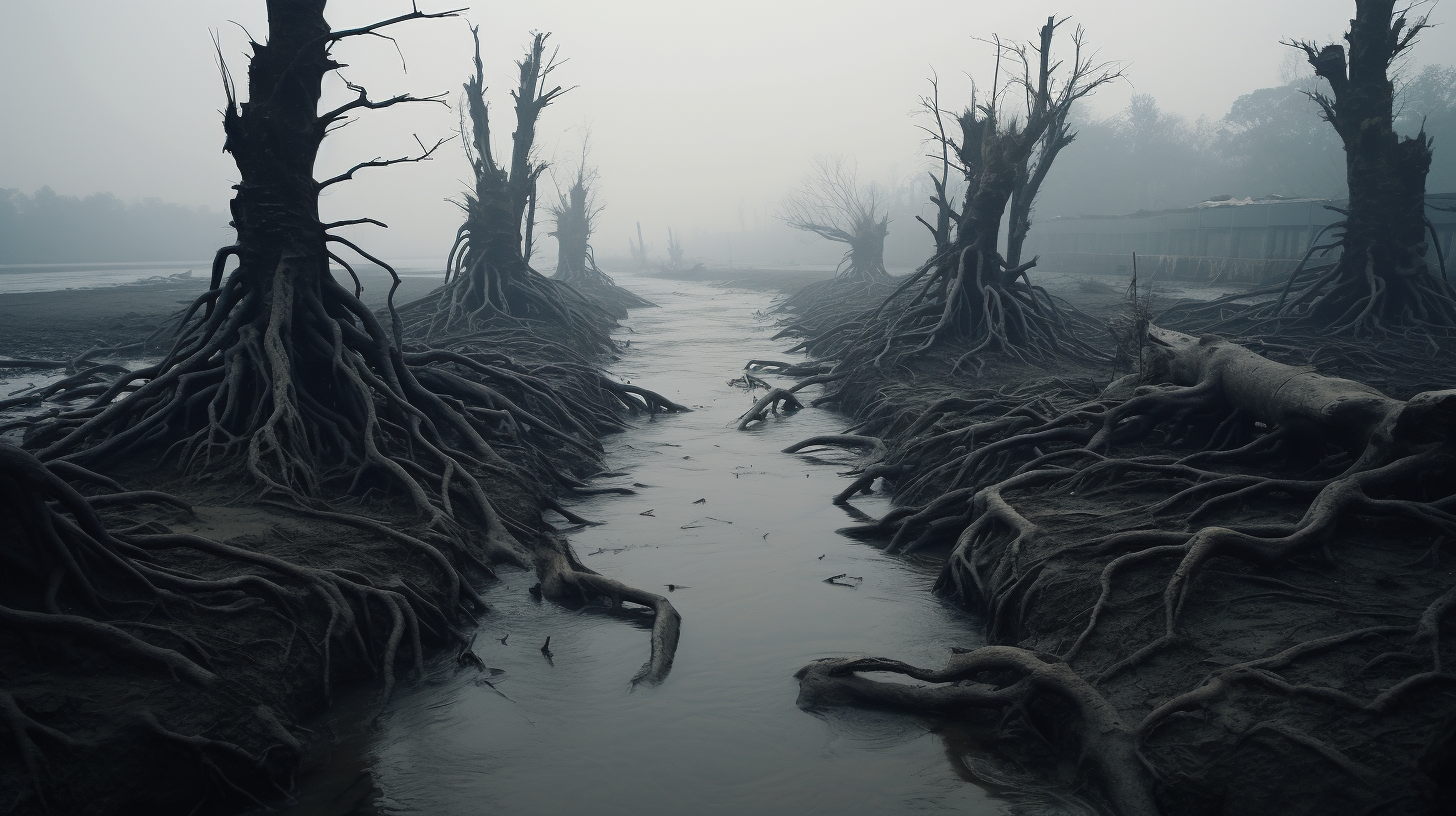In a world thirsty for a drop of hope, the riverbeds lay barren, like the open veins of an exhausted entity no longer able to sustain its lifeblood. This grim tableau forms the backdrop for a story we are all unwitting characters in—the tragic tale of how our rivers, the sinewy veins that have kept our Earth alive, are retreating into a dismayed silence.
Rivers—once mighty arteries that wove through our landscapes, nurturing ecosystems, and civilizations—are now ebbing away. In this bygone landscape, it is not just the waters that have disappeared but also the spirit they carried—the belief in nature’s once endless abundance.
The silent specter of vanished rivers is felt everywhere. Once fertile deltas, now dust-laden, tell a story of despair, where the soil cracks mirror the fracture in our global consciousness. The symphonies of life that danced along riverbanks have been replaced by the hollow echoes of desiccation, a reverberation of humanity’s neglect.
This narrative winds through areas that were dependent on the life-giving courses of rivers like the Euphrates, the Yangtze, and closer home, the drained veins of the Colorado River Basin. An in-depth gaze into the Colorado’s plight, once a powerful provider now reduced to a trickle, reveals a tableau of parched earth where children are learning about rivers, not by witnessing their flow but through the virtual reality visors that simulate the aquatic wonders of a forgotten time.
Communities around these ‘vanished veins’ exist in a constant state of ‘liquid mourning’. Rituals have transformed, now centered around the memory of water. Theatre productions depicting the ‘River’s Requiem’ are performed, not to entertain, but to remember and mourn. In this act, there is a striking absence of hope. For to hope would be to believe in a future where the rivers flow again, and belief is a luxury that has evaporated alongside our rivers.
The economies once buoyed by the river trade have billowed into dust-devils of joblessness and scarcity. We hear the term ‘Hydroraiders’—once merely speculative—is now a stark reality. These bandits are the roving marauders of moisture, hijacking convoys carrying what little fresh water remains, trading life for life in the most twisted of economies.
The stark division between the ‘Haves’ and the ‘Have-nots’ has never been so pronounced as it is with water. The technological advancements allowing the extraction of water directly from the atmosphere are owned by the elite, creating an oligarchy of the soaked, while the impoverished masses remain parched, their lips cracked in despair.
Scientists still chase the chimera of terraforming, of conquering the skies to induce rain, to bridge the chasms opened by the retreat of the rivers. Yet, with each failed experiment, the truth becomes clearer: we are etching ourselves deeper into the dusty grooves of a world running on empty.
The void left by our vanishing rivers is more than physical. It’s a cultural hemorrhage, a loss of identity where myths dry up and legends turn to dust. There is an urgent, albeit futile, attempt to inscribe this loss into the annals of art and history—photographers capture the haunting beauty of these desolate landscapes, sculptures rise from the dried-up mud in stark testimony, and poets pen elegies to the ceaseless flow that once was.
In ‘When Rivers Retreat,’ we bear witness to the symptoms of our own undoing and the unraveling of the natural tapestry that once vividly colored our world. Through the dust-laden wind, we can almost hear the requiem of the rivers—a lullaby for a world to sleep, perchance to dream of water.
And thus, our story wanes as the rivers once did; with neither fanfare nor redemption, simply ending as silent as the departed streams themselves. In a final whisper, the rivers retreat, and with them, the very essence of what it meant to be sustained by the Earth’s tender mercies.
